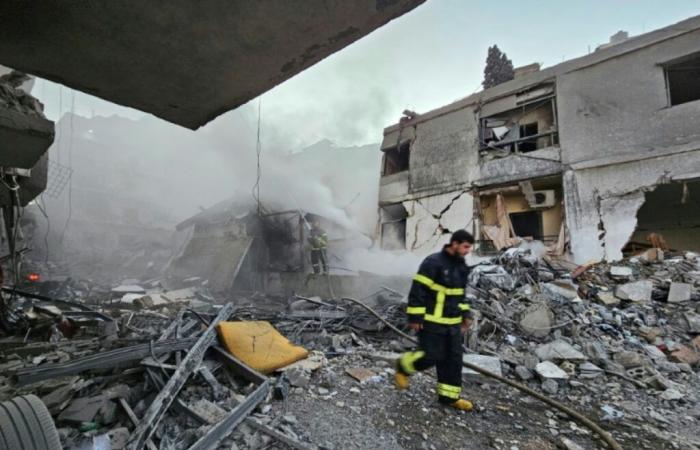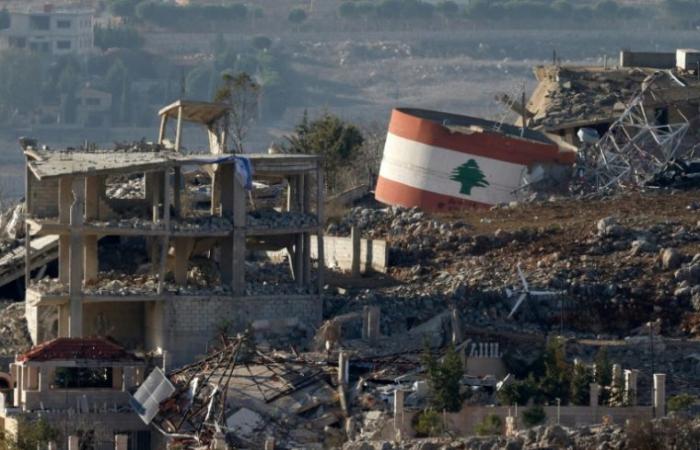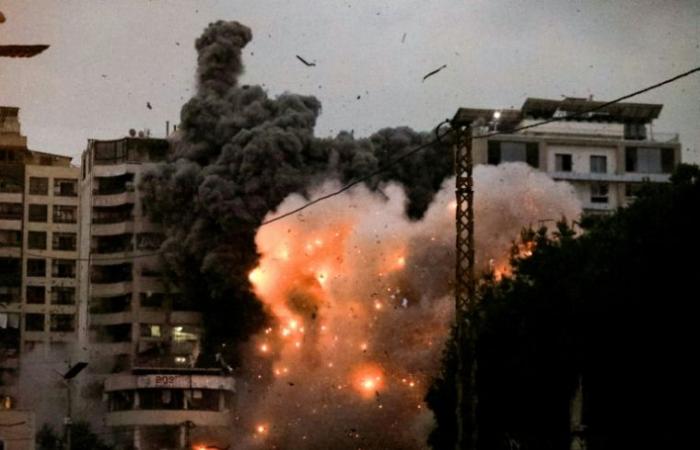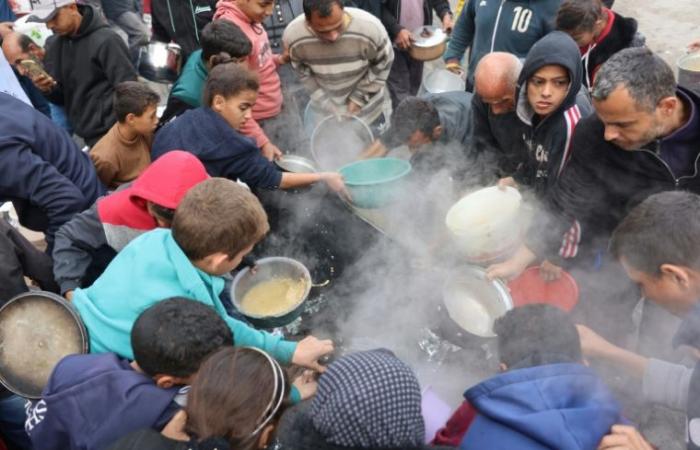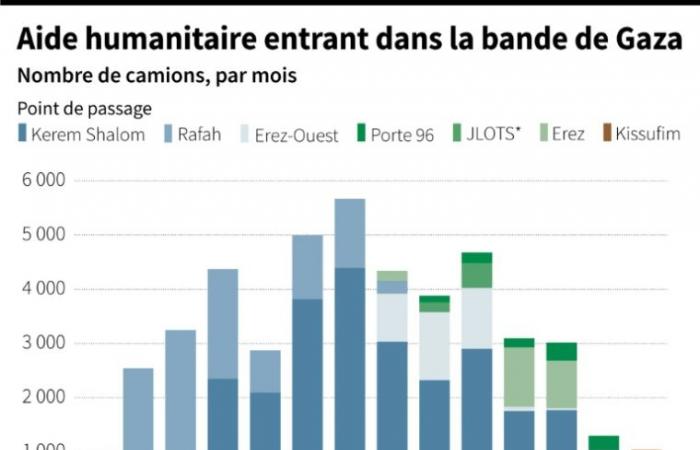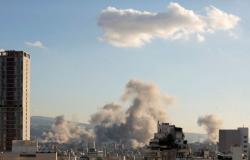A firefighter at the site of an Israeli bombing in the southern suburbs of Beirut on November 26, 2024 (AFP / -)
A ceasefire between Israel and Hezbollah will come into effect on Wednesday morning in Lebanon, US President Joe Biden announced on Tuesday, after more than a year of cross-border hostilities and two months of open war between the Israeli army and the powerful Lebanese formation armed and supported by Tehran.
The truce for which the United States and France have been working for weeks will begin at 2:00 a.m. GMT on Wednesday, Mr. Biden announced, immediately welcoming the evening announcement, by the office of Israeli Prime Minister Benjamin Netanyahu, of the approval of the ceasefire by the Israeli security cabinet.
In a joint statement, Mr Biden and his French counterpart Emmanuel Macron said their countries would ensure that the ceasefire agreement in Lebanon was “implemented in its entirety and enforced”.
They assured that this agreement would “protect” Israel from the “threat” of Hezbollah, committing to work to strengthen the “capacities” of the Lebanese army and the recovery of the country's economy.
Mr. Biden also affirmed Tuesday that the United States would lead a new initiative “in the days to come” “to achieve a ceasefire in Gaza, the release of the hostages and an end to the war without Hamas in power.
The Lebanese Prime Minister welcomed a “fundamental step” towards regional stability, and announced a strengthening of the presence of the Lebanese army in the south, on the border with Israel.
The Shiite movement assured that it would continue to fight Israel as long as the offensive in Gaza continued, while saying it was open to a ceasefire.
Without reacting immediately to the announcement of the ceasefire, he claimed responsibility for shooting towards Israel's north in the evening.
– “Intensify pressure on Iran and Hamas” –
Before the final Israeli green light, Mr. Netanyahu indicated that the duration of the ceasefire would depend “on what happens in Lebanon”. “In full agreement with the United States, we maintain complete freedom of military action” in Lebanon, he added: “If Hezbollah violates the agreement and tries to rearm, we will attack.”
A truce in Lebanon will allow Israel to “focus on the Iranian threat”, and to “intensify” its pressure on Hamas, against which it is leading a deadly offensive in the Gaza Strip in retaliation for its unprecedented attack on the Israeli soil on October 7, 2023, he said.
He welcomed the fact that Hezbollah, whose leadership Israel has largely decimated, notably killing its charismatic leader Hassan Nasrallah at the end of September who had made it an essential political force in Lebanon, “is no longer the same”. “We sent them back decades,” he argued.
– “Take revenge on the Lebanese” –
The announcement of the agreement came after Israel on Tuesday shelled the center of Beirut and its southern suburbs, a stronghold of Hezbollah, like never before since it launched a bombing campaign on September 23 targeting the movement in the neighboring country, then began ground operations in the south on September 30.
Bombings in the heart of Beirut killed at least ten people, according to Lebanese authorities.
A strike again targeted a building in the central shopping district of Hamra in the evening, noted an AFP journalist. The Israeli army reported new projectile fire targeting the national territory from Lebanon.
– “Historical error” –
Israel was under international pressure to accept a deal.
The American news site Axios had indicated before the announcement of the agreement that its project envisages a 60-day truce during which Hezbollah and the Israeli army would withdraw from southern Lebanon to let the Lebanese army there. deploy.
The plan includes the establishment of an international committee to monitor its implementation, according to Axios.
International diplomacy has relied on UN Security Council Resolution 1701 which ended the previous war between Israel and Hezbollah in 2006, and stipulates that only the Lebanese army and peacekeepers can be deployed on the southern border of Lebanon.
A figure of the far right allied to Mr. Netanyahu, Itamar Ben Gvir, Minister of National Security, criticized the agreement as “a historic error”.
The mayor of Metula, an Israeli town in the north emptied of its inhabitants by Hezbollah fire, also argued that he would not establish lasting peace in the region.
Photo taken from northern Israel shows an Israeli flag and a Lebanese flag flying over the ruins in the village of Meiss El-Jabal, southern Lebanon, on November 25, 2024 (AFP/Jalaa MAREY)
The war that has raged since October 2023 in the Gaza Strip between Israel and Hamas has spread to Lebanon after a year of exchanges of fire on both sides of the Israeli-Lebanese border.
Israel claims to want to neutralize Hezbollah in southern Lebanon, which opened a front against it on October 8, 2023 in support of Hamas, to allow the return of some 60,000 inhabitants of the north driven out by its fire.
According to the Lebanese Ministry of Health, nearly 3,800 people have been killed in Lebanon since October 2023, most of them since September. The hostilities have displaced some 900,000 people, according to the UN.
On the Israeli side, 82 soldiers and 47 civilians were killed in 13 months.
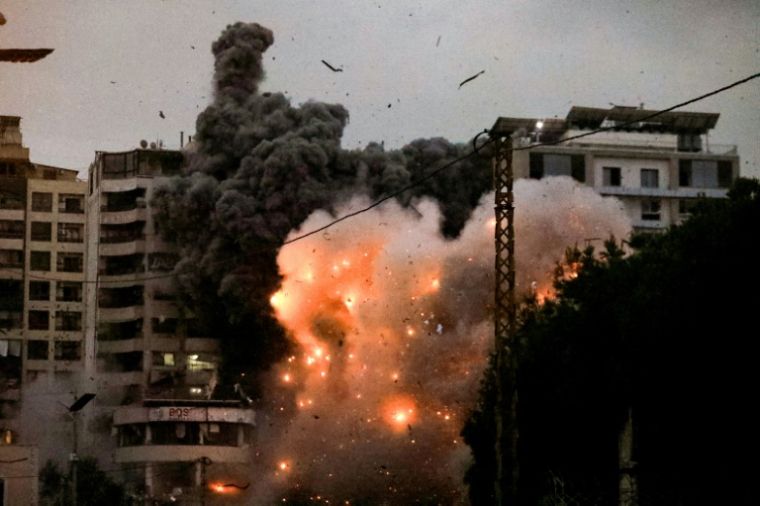
Israeli bombing on the southern suburbs of Beirut, November 25, 2024 (AFP / -)
– 22 dead in Gaza –
The Israeli army continues its strikes on the besieged Gaza Strip, where at least 22 people were killed on Tuesday, according to Civil Defense, and where thousands of displaced people are trying to protect themselves from the rain and cold.

Palestinians wait to receive a food ration in front of a distribution center near Gaza City, November 25, 2024 (AFP / Omar AL-QATTAA)
The winter is going to be “horrible”, the United Nations agency for Palestinian refugees (UNRWA), while the Gazans have “for 13 months: neither food, nor water, nor shelter”.
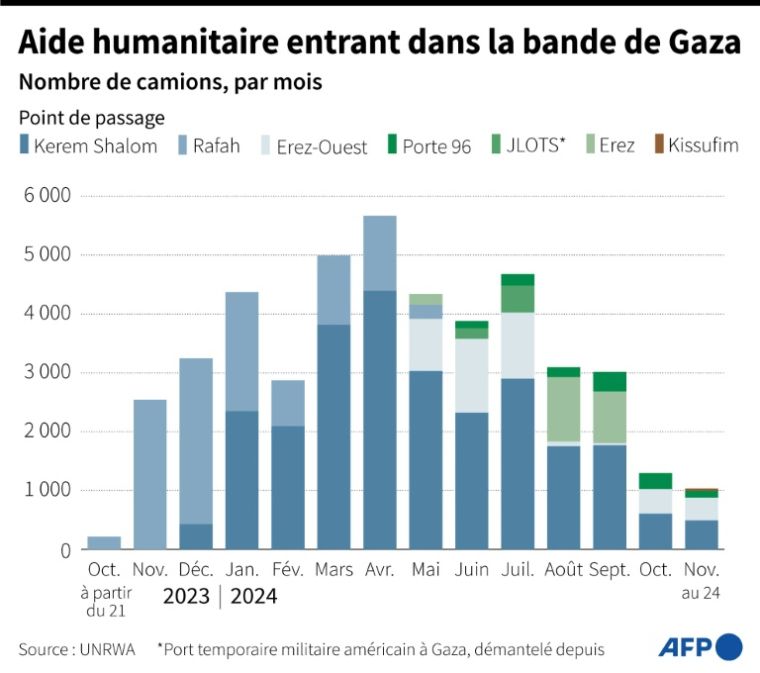
Chart showing the number of humanitarian aid trucks entering the Gaza Strip since October 21, 2023, according to UNRWA data (AFP/Omar KAMAL)
The war was sparked by the Hamas attack, which led to the death of 1,207 people on the Israeli side, mostly civilians, according to an AFP count based on official data, including hostages killed or died in captivity.
The Israeli offensive carried out in retaliation in Gaza left at least 44,249 dead, the majority civilians, according to data from the Hamas Ministry of Health, deemed reliable by the UN.

